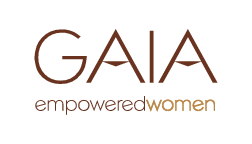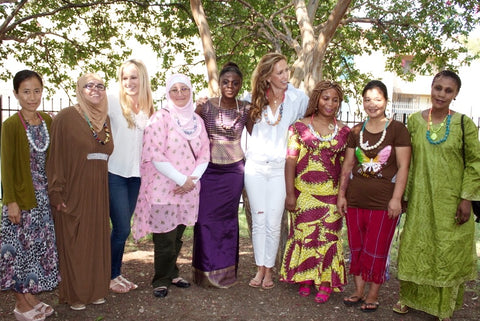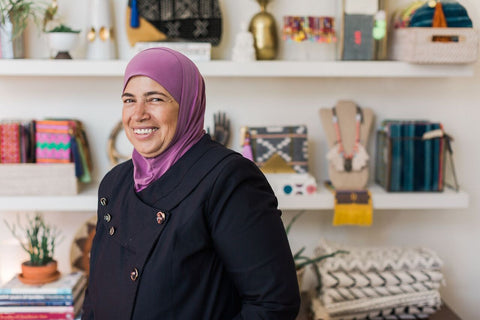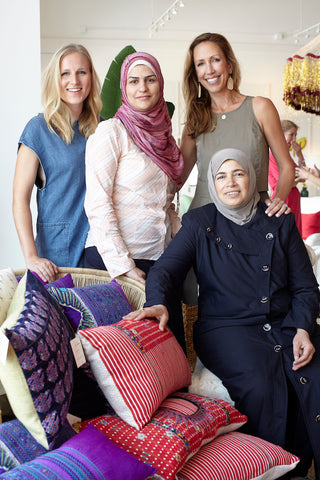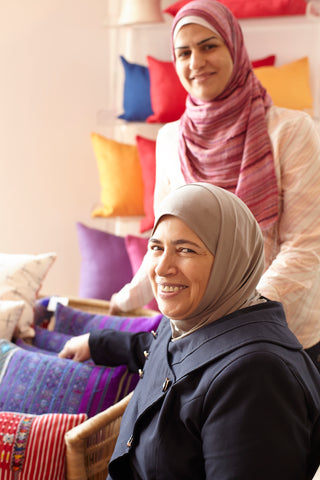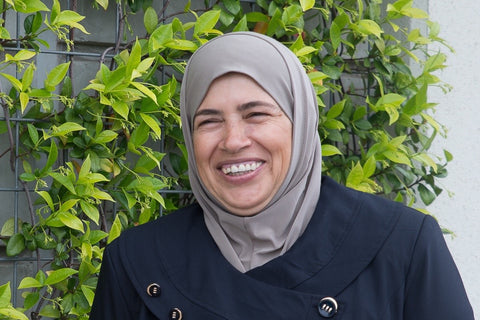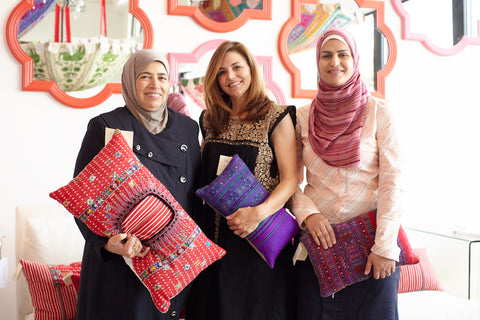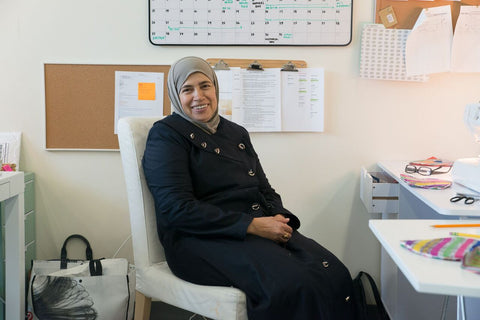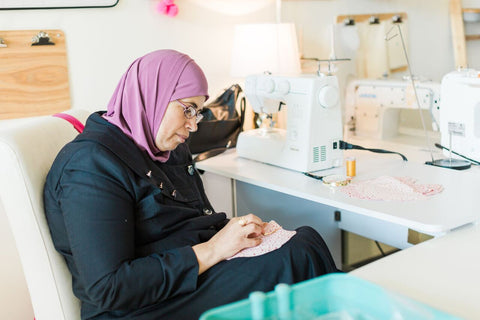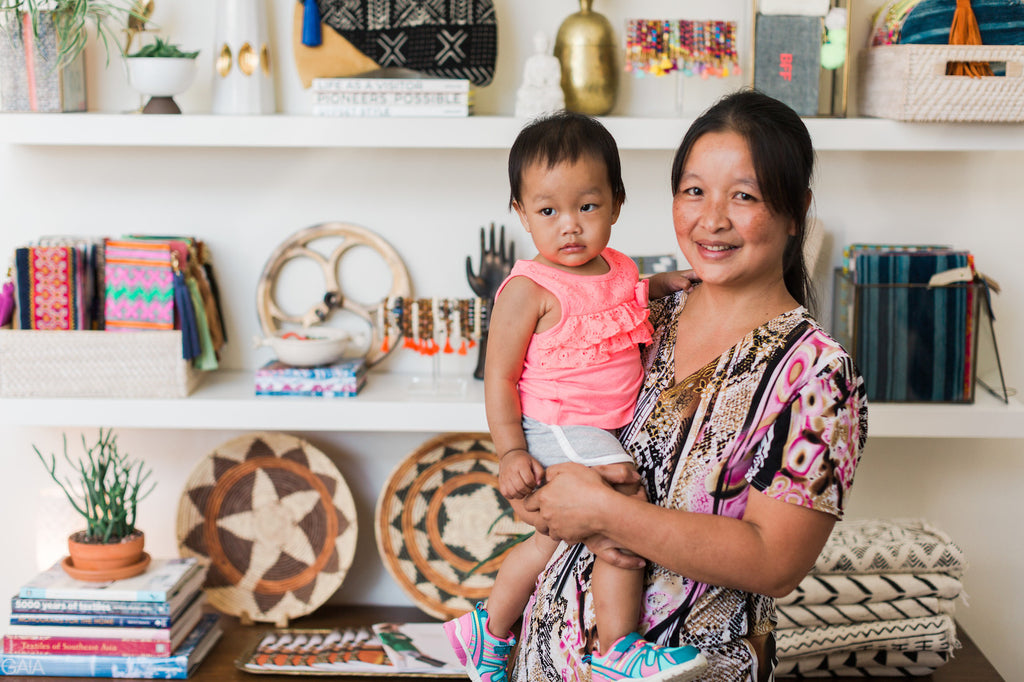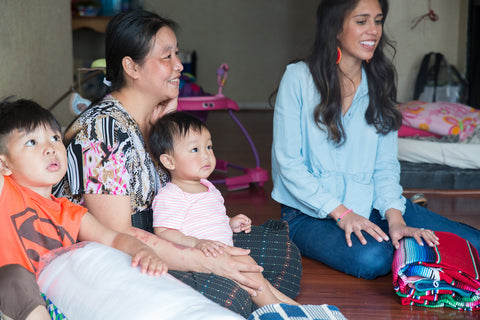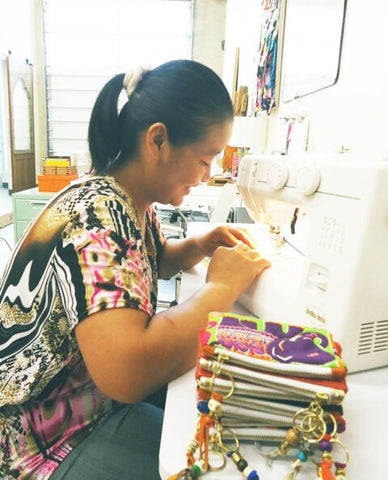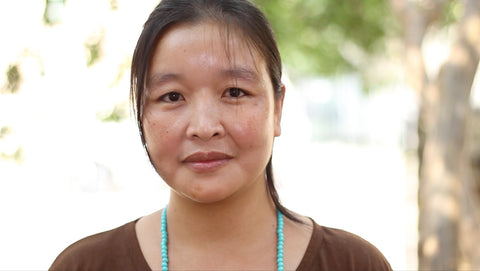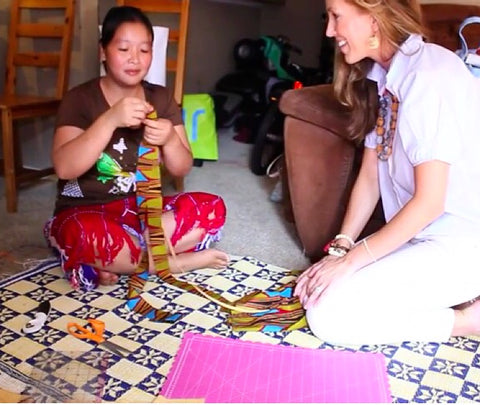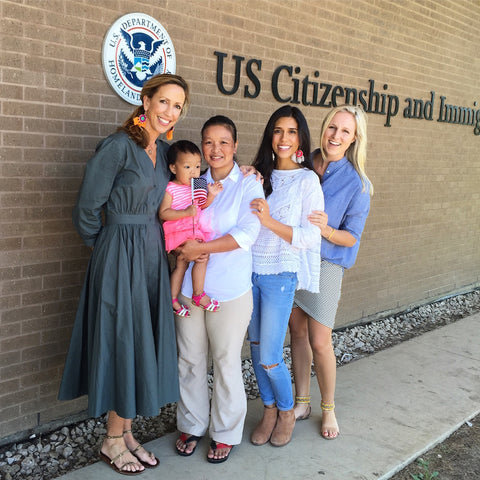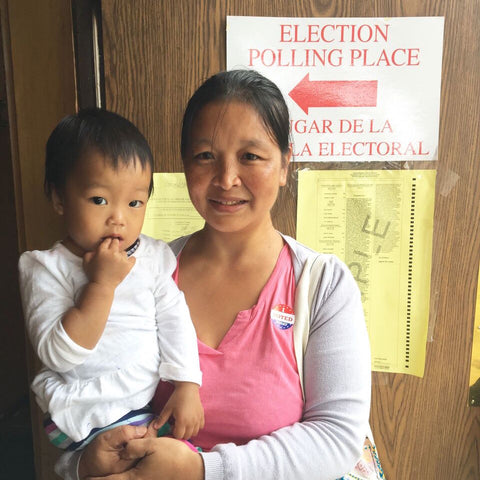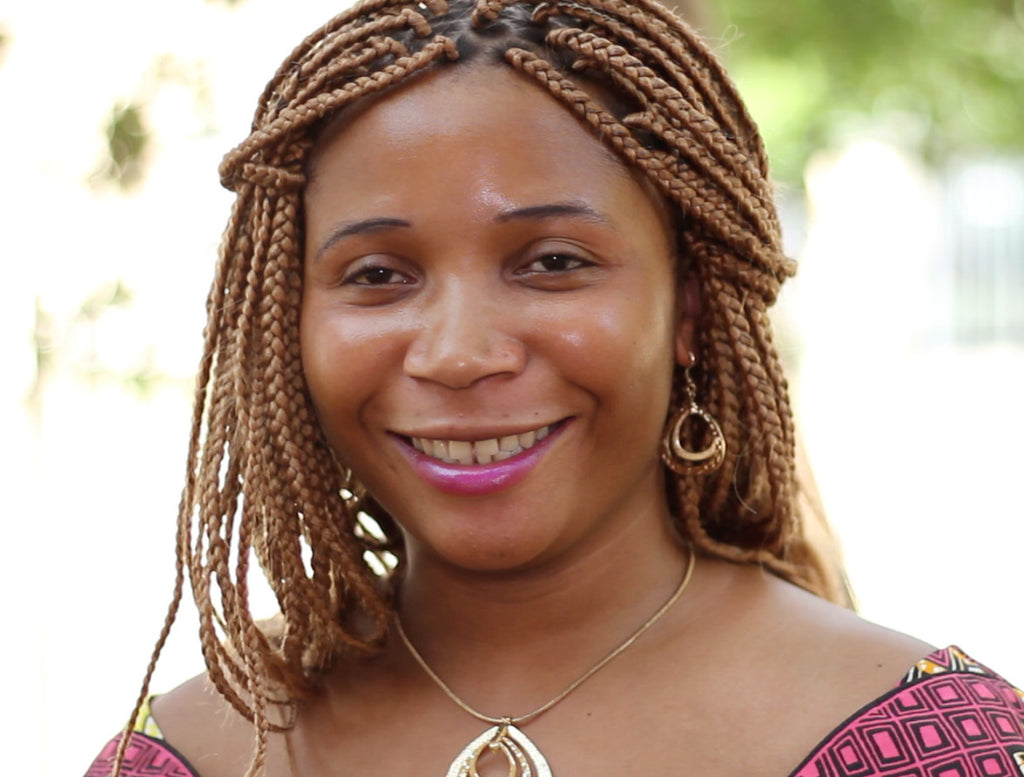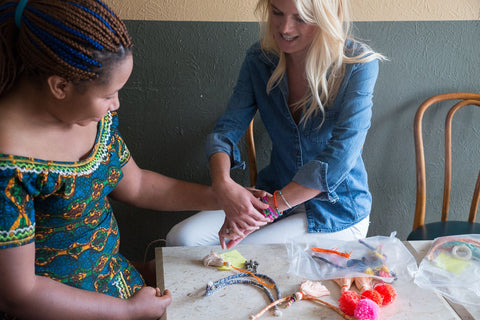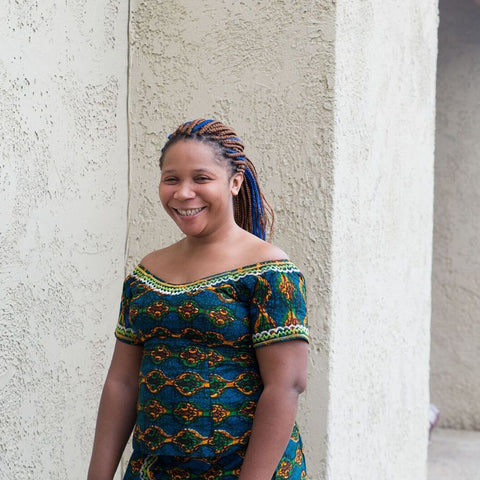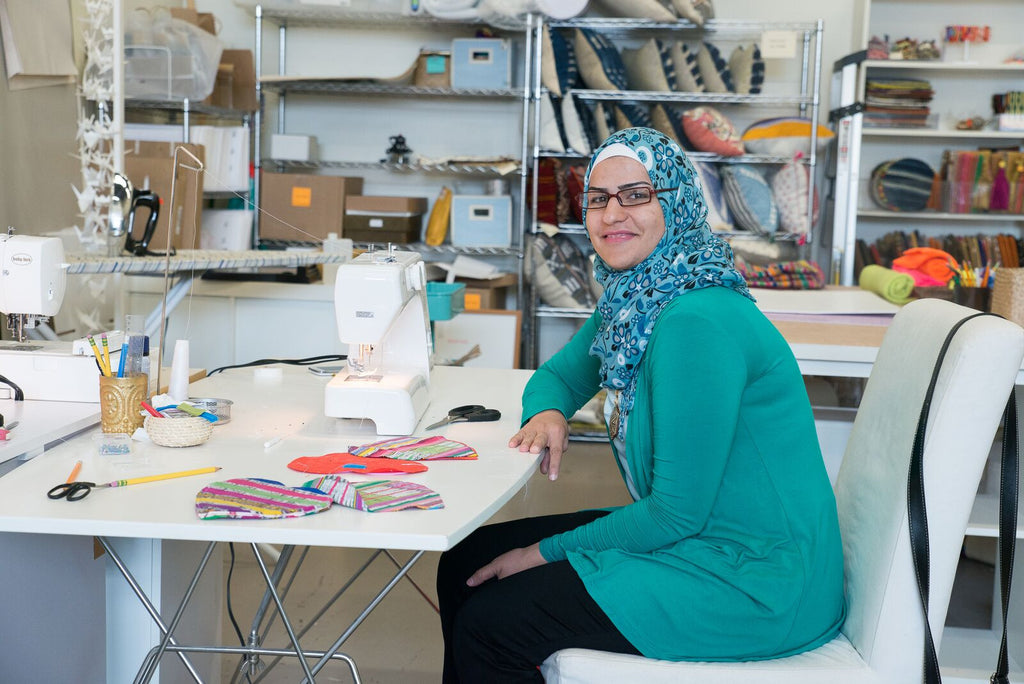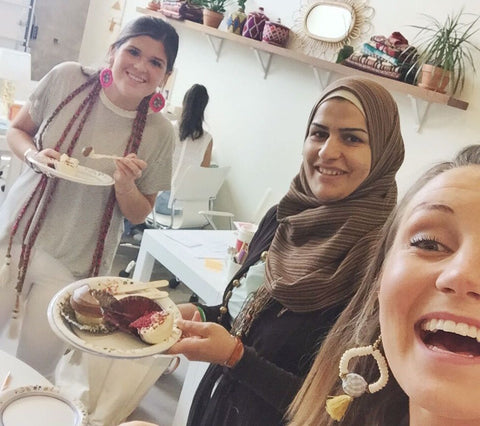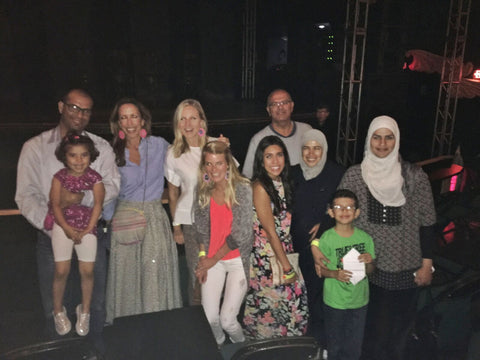Meet Latifa
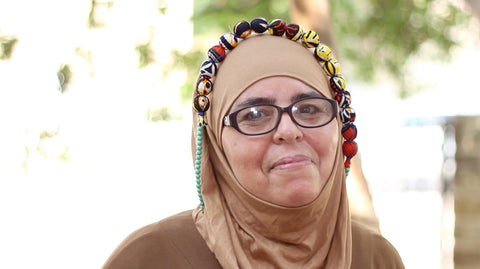
When Latifa Majri smiles at you, you smile back. You can’t help it. She has a joy that’s contagious, a charming twinkle in her eye, and a warm spirit that draws you in. From the moment you meet her, you feel like she’s an old friend.
Now 45, Latifa moved to the United States with her husband, Duraid Abdulkarim, in 2010. Originally from Tunisia, a North African country on the Mediterranean Sea, Latifa met Duraid in Iraq while visiting her brother, who was studying there. Duraid was her brother’s friend, and before long, Latifa and Duraid were married.
However, even after they wed, Tunisia would not allow Duraid to become a legal resident of the country. With a war raging in Iraq, the couple couldn’t return to his homeland, so they moved to Jordan to live.
Displaced but Determined
Life was difficult even there. Because she was Tunisian, Latifa was allowed to work legally. She got a job sewing clothes. But as an Iraqi refugee, Duraid was forbidden to have a legal job. They did the best they could to make a life. After nine years in Jordan, the couple was chosen by the International Rescue Committee to come to the United States.
Latifa says she was elated by news of the move. She knew that having an American green card would mean she would be free to visit her family in Tunisia whenever she wanted — something not available to her while she was living in Jordan. She missed her family deeply, and when her mother died, she was not allowed to return for the funeral. That had crushed her. Since relocating to Texas, Latifa has been home to Tunisia every year to visit her two sisters and brother.
“I miss them a lot,” she says, “but every day I call them, every day we chat.” She gestures to the laptop sitting on her coffee table, and says, “I am looking for cheap tickets all the time.”
It’s unusual for refugees to be able to afford frequent international travel, but Latifa is a woman with not only a beautiful smile, she also has a strong work ethic, unflagging determination, and goals. She holds two jobs — making necklaces and handbags at GAIA and taking care of children at a nearby daycare — and is adept at saving money. Duraid works at Parkland Hospital, and the couple lives comfortably in an apartment in Northeast Dallas.
Firmly Rooted in America
In June 2015, Latifa and Duraid became United States citizens. “June 2, 2015, I took the test,” Latifa says, remembering the date with that big, infectious smile and obvious pride. “And the ceremony was June 19, 2015. When I passed, I was crying!”
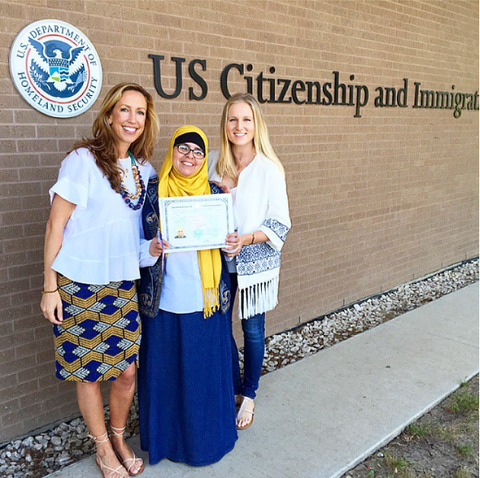
Latifa says she loves living in the United States. When she talks about being unafraid here, she gives herself a hug. When she shares that she voted for the first time in the 2016 presidential election, she positively beams.
Latifa and Duraid knew no English when they arrived in Texas. They had no friends. They had very little money. But they went to school and learned the language. They both got jobs and rebuilt their lives. Seven years after their move, they are healthy and happy and filled with gratitude for the opportunities given them.
GAIA Refugee Artisans
Latfia is one of 19 refugee artisans currently working at GAIA. As her story demonstrates, meaningful work and a living wage are key in a refugee’s efforts to rebuild a happy life. These women are why we exist, and it is our honor and privilege to share their stories with you.
Please take the time to read about Huda and Bothina and keep reading our blog in the months ahead for more of their stories.
Learn more about about refugee resettlement and how you can help at rescue.org.
Continue reading